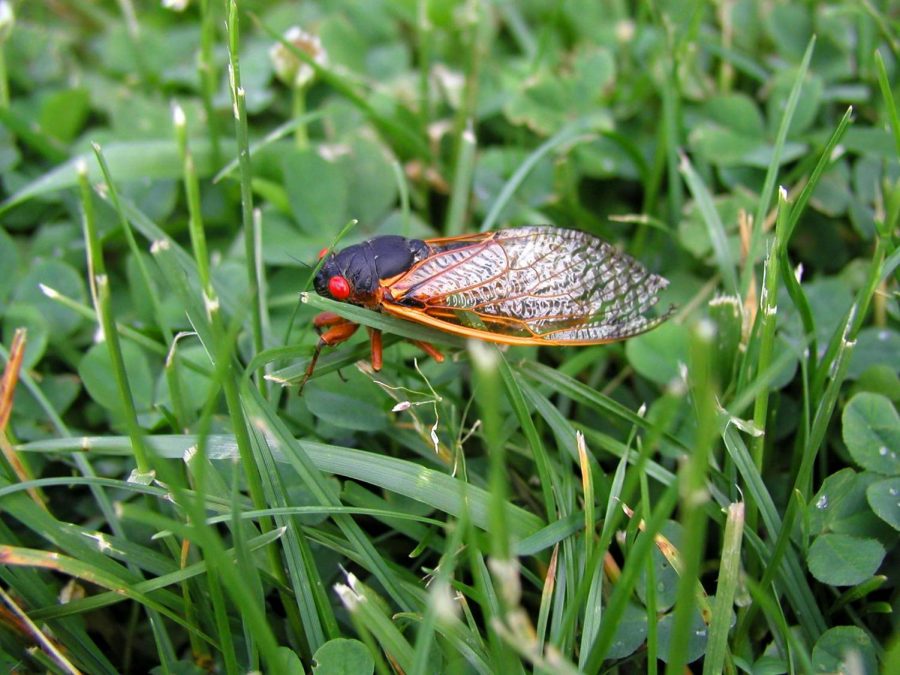It’s that dreaded time again. Brood X cicadas are expected to remerge this summer of 2021. Brood is one of the largest and widespread types of cicadas, meaning that “this year’s emergence could mean tens of billions of cicadas,” states Dr. Matt Kasson, an associate professor of forest pathology and mycology at West Virginia University, in an article by the New York Times. The cicadas come out from underground every 13 or 17 years. Brood X cicadas emerge from the ground, mate (hence the irritating noises they make in the morning), lay larvae, then the larvae go back underground to begin the cycle again, reappearing aboveground after 17 years. An article by The Washington Post informst that “The males will start mating songs that reach up to 100 decibels.” In the same article, Mike Raupp, an entomologist at the University of Maryland that travels the country to speak about cicadas, states that 100 decibels is about “the sound of a chain-saw, a lawn mower, a jet overhead.” The CDC, the Center for Disease Control and Prevention, states that 50 minutes of ongoing exposure to sounds at 95 decibels can cause ear damage.
Brood X cicadas are anticipated to be in 15 states- Delaware, Georgia, Illinois, Indiana, Kentucky, Maryland, Michigan, New Jersey, New York, North Carolina, Ohio, Pennsylvania, Tennessee, Virginia, West Virginia-and in Washington D.C. In New Jersey, cicadas will begin appearing in May and stay until mid-June. A chart from an article by the University of Connecticut demonstrates that the next Brood X swarm/reappearance will not be until 2038, although delays in their reappearance, called straggling, can occur. The cicadas have bulging red eyes, thick, black bodies, and orange-lined wings. Cicadas can be anywhere from 2-5 inches long.
Brood X is composed of the species Magicicada septendecim, Magicicada cassini and Magicicada septendecim. These different species will have the same purpose and are harmless but will have different sounds and will be more inclined to different trees. In addition, all cicadas don’t bite or sting but can be harmful to an animal’s digestive system due to their exoskeleton. Therefore, other than their early morning incessant raucous that may interrupt our morning sleep, and possibly the fear they bring to all pest hating people, cicadas are completely harmless to humans. That said, cicadas can still harm trees due to the female cicadas cuts in the tree to lay their larvae, so Eric Day, an extension entomologist at Virginia Tech, “recommends that farmers and homeowners not plant saplings until July, when all the cicadas in the area have died,” from an article by The Washington Post.












